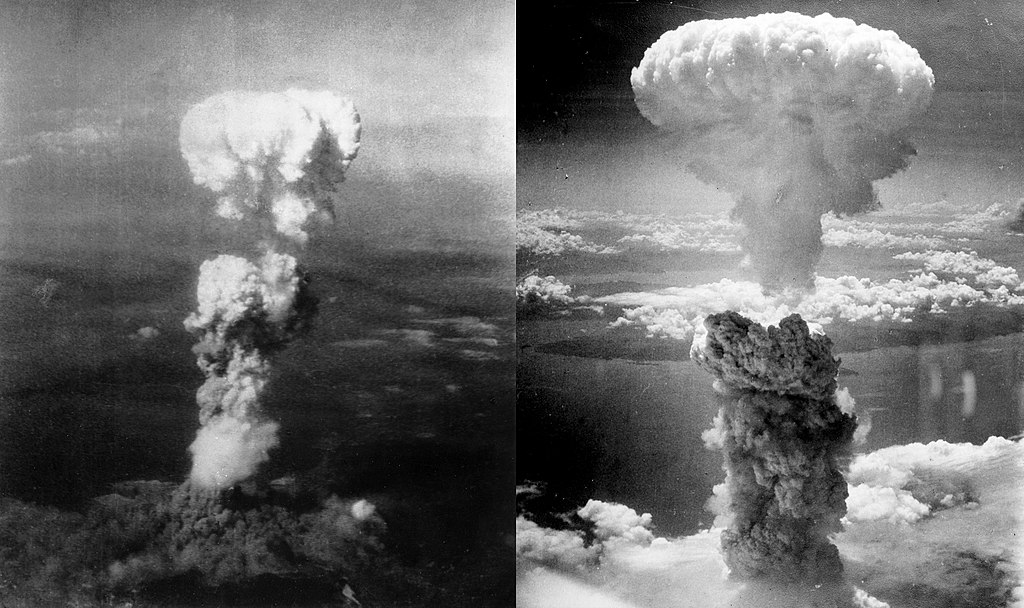J. Robert Oppenheimer and the Manhattan Project: Delve into the groundbreaking world of the ‘father of the atomic bomb’, explore his pivotal role in the transformative Manhattan Project, and his enduring legacy in nuclear physics. Experience the drama and tension of this historical period revived in Christopher Nolan’s acclaimed 2023 biographical thriller, ‘Oppenheimer.’ This exploration invites a deeper understanding of Oppenheimer’s life, his immense contributions, and the profound societal impacts of his work.
The Manhattan Project – Birth of the Atomic Era
In the thick of World War II, with the fate of nations hanging in the balance, a secret project of unprecedented scale was initiated by the United States. It was known as the Manhattan Project. The objective was singular, yet terrifyingly ambitious: to develop the world’s first atomic weapon.
Theoretical physicist J. Robert Oppenheimer, a respected figure in the realm of quantum mechanics, nuclear physics, and astrophysics, was given the monumental responsibility of leading the scientific side of the project. Under his direction, the brightest minds were assembled at secluded locations across the U.S., with the primary site at Los Alamos, New Mexico.
Oppenheimer’s role extended beyond providing his vast technical expertise. He was the nucleus of a highly skilled team, coordinating their efforts, inspiring innovation, and steering them toward a single, formidable goal. His leadership helped overcome numerous technical hurdles and logistical challenges. By 1945, the team achieved what once seemed insurmountable: the successful detonation of the first atomic bomb, codenamed “Gadget,” in the Trinity Test.
However, the project’s success was accompanied by a sobering awareness of the destructive power they had harnessed. The haunting words Oppenheimer recalled from the Bhagavad Gita captured this sentiment perfectly: “Now I am become Death, the destroyer of worlds.”
The following weeks would see the deployment of two atomic bombs, “Little Boy” and “Fat Man,” over the Japanese cities of Hiroshima and Nagasaki, leading to an abrupt end of World War II. The bombings caused widespread devastation, with an estimated death toll of 200,000 people, mostly civilians.

Thus, the Manhattan Project birthed the atomic era. It marked a turning point in human history, transforming the nature of warfare and global politics. The prospect of nuclear annihilation cast a long, dark shadow over international relations, igniting the Cold War and fueling an intense arms race.
Oppenheimer, once an advocate for creating even more potent nuclear weapons, became a voice for nuclear arms control. His work, shadowed by political controversies and accusations of communism, would continue to influence both the world of science and the broader discourse on nuclear power.
The legacy of the Manhattan Project and J. Robert Oppenheimer is a testament to the double-edged sword of scientific progress, capable of both ending a global conflict and threatening future generations with the specter of nuclear warfare. The echoes of this monumental scientific endeavor still reverberate in the world today, a stark reminder of the power – and the peril – of the atomic age.
The Silver Screen Legacy – Christopher Nolan’s “Oppenheimer”
In 2023, the life and work of J. Robert Oppenheimer found a new form of expression on the silver screen in the biographical thriller “Oppenheimer.” Directed and written by Christopher Nolan, the movie takes inspiration from the 2005 biography “American Prometheus” by Kai Bird and Martin J. Sherwin. The film delves into the physicist’s pivotal role in developing the first nuclear weapons during the Manhattan Project, thereby inaugurating the Atomic Age.
The ensemble cast is a parade of high-profile talent. Cillian Murphy takes on the role of Oppenheimer, while Emily Blunt portrays Oppenheimer’s wife, Katherine “Kitty” Oppenheimer. Other notable cast members include Matt Damon as General Leslie Groves, Oppenheimer’s military handler, and Robert Downey Jr. as Lewis Strauss, a senior member of the United States Atomic Energy Commission.
Universal Pictures won the rights to Nolan’s screenplay in September 2021, with the main cast announced between October 2021 and April 2022. The production process started in January 2022, with filming carried out from February to May. In line with Nolan’s distinctive filmmaking style, “Oppenheimer” was shot using IMAX 65mm and 65mm large-format film, including history’s first usage of IMAX black-and-white film photography. Practical effects and minimal computer-generated imagery further enhanced the film’s authenticity.
The film premiered at Le Grand Rex in Paris on July 11, 2023, and was released in the United States and the United Kingdom on July 21, 2023. The timing coincided with the release of Barbie, leading to a social media trend known as the “Barbenheimer” phenomenon, which urged audiences to see both films as a double feature.
“Oppenheimer” received widespread critical acclaim, particularly for its screenplay, visuals, and the performances of its cast. The film grossed $174 million worldwide and was frequently cited as one of the best films of 2023. Critics on Rotten Tomatoes gave it a 94% approval rating, while Metacritic assigned a score of 89 out of 100, signaling “universal acclaim.” CinemaScore audiences awarded the film an average grade of “A,” reflecting a high degree of satisfaction.
Esteemed critics such as Richard Roeper described it as “magnificent” and one of the best films of the 21st century, while Empire’s Dan Jolin lauded it as a “masterfully constructed character study.” Caryn James from BBC Culture saw it as “boldly imaginative” and Nolan’s “most mature work yet.” However, there was some criticism concerning the portrayal of female characters and the juggling of multiple plot elements.
Thus, through Christopher Nolan’s “Oppenheimer,” the legacy of J. Robert Oppenheimer and the Manhattan Project continues to impact and inspire. It serves as a testament to the enduring relevance of this chapter in history and its capacity to spark thoughtful discussion and artistic interpretation.
Historical Challenge: Can You Conquer the Past?
Answer more than 18 questions correctly, and you will win a copy of History Chronicles Magazine Vol 1! Take our interactive history quiz now and put your knowledge to the test!

